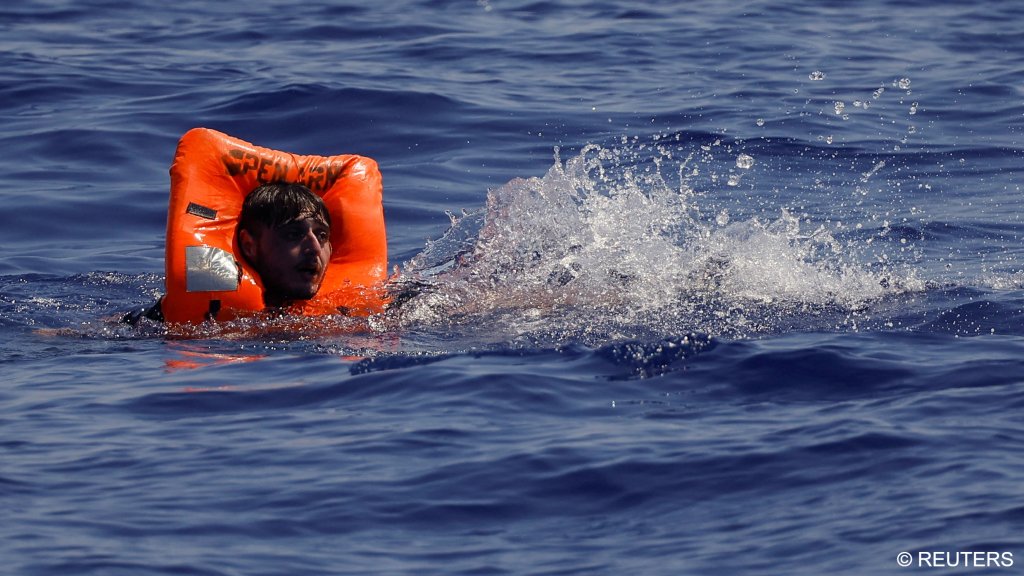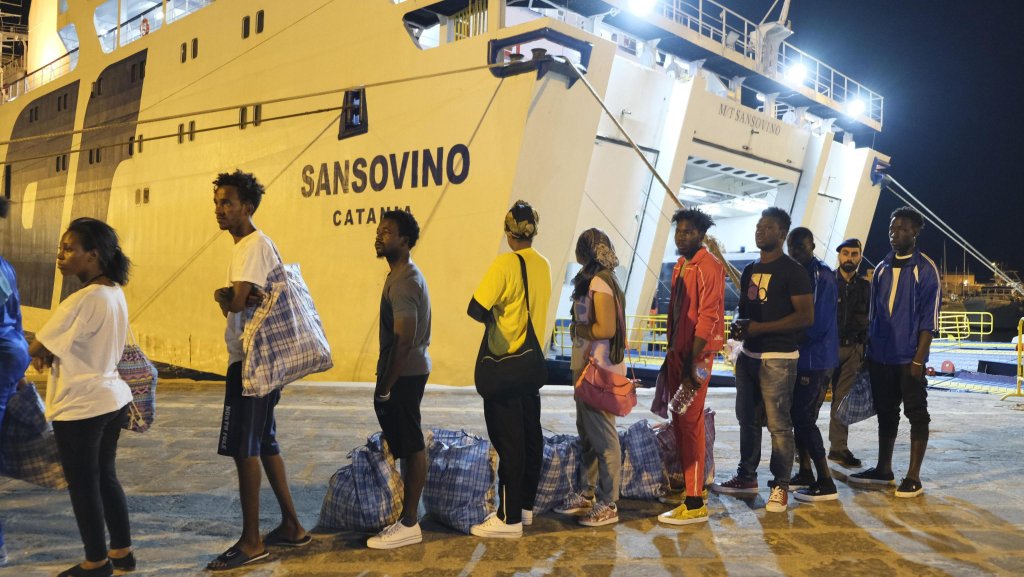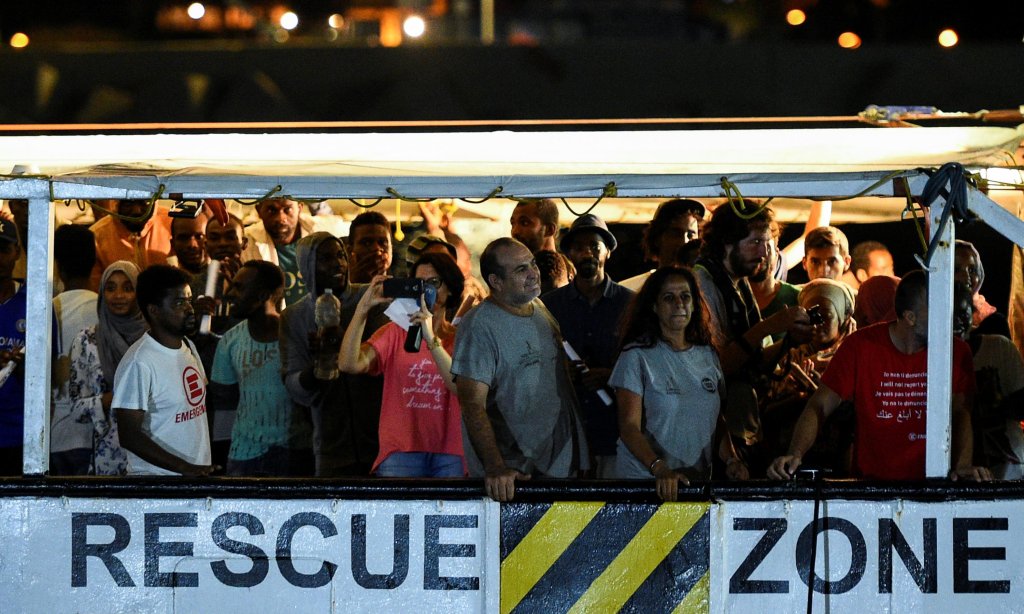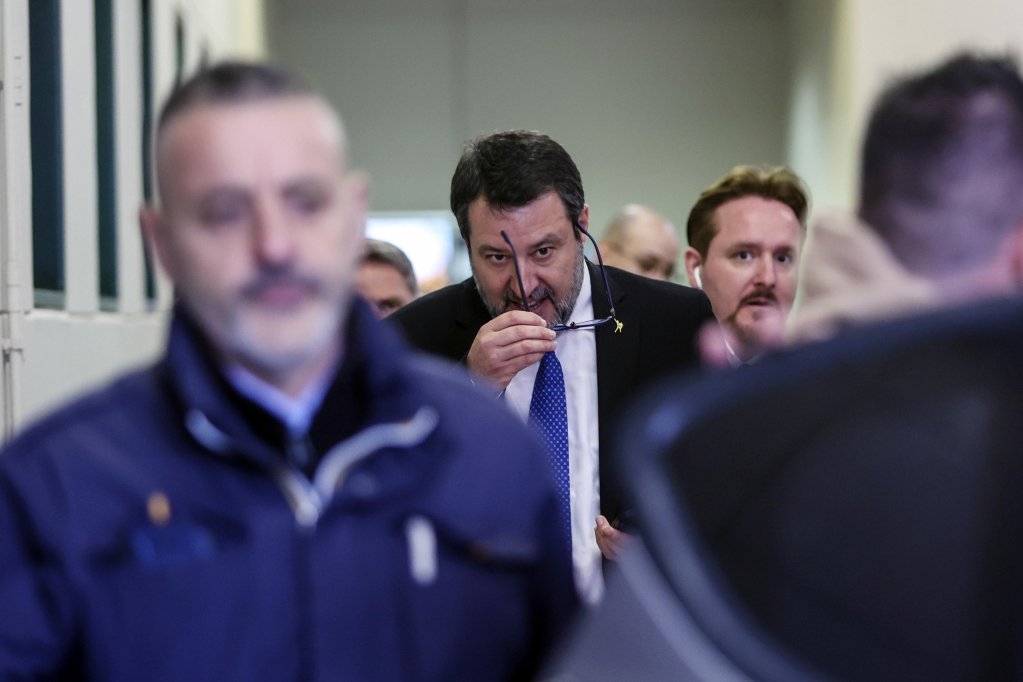The trial involving Italian Deputy Prime Minister Matteo Salvini and the migrant rescue organization Open Arms is back in the news once again. InfoMigrants looks in more detail at what the case is about.
Why a trial?
Italy’s Deputy Prime Minister Matteo Salvini, leader of the anti-migrant League (Lega) party, is currently involved in a criminal trial in Italy.
The trial started in October 2021, following a decision Salvini took in 2019 as interior minister under a previous administration.
His decision was to block the private migrant rescue ship Open Arms, operated by the Spanish-based Open Arms charity, from docking and disembarking rescued migrants in Italy.
Salvini prevented the ship from docking for almost three weeks. Finally, his decision was overturned by a court order, and Open Arms was able to dock on the island of Lampedusa.
Because of this decision, Salvini was charged with kidnap and dereliction of duty.

2019
The Open Arms ship was carrying around 160 migrants, including many people from sub-Saharan African countries, at the time it was prevented from docking.
It had rescued these migrants off the Libyan coast. First, it came to the aid of a boat carrying 55 migrants. When it asked for a safe port, Salvini refused to let the boat enter Italian territorial waters, or indeed transit through them.
While the boat was then waiting in international waters off the coast of Libya, it carried out two further rescues, each time requesting the Italian and Maltese authorities for a port in which to disembark the migrants.
By the time the ship was allowed to dock, after 19 days of what the crew of the Open Arms described as a "prison on the ship’s deck," there were 83 migrants on board. 27 unaccompanied minors were taken off the boat and brought to land ahead of its docking.
Others had been airlifted off the Open Arms in the interim because of medical problems or vulnerabilities that needed more urgent attention.

Finally allowed to dock
The boat was eventually allowed to dock after a prosecutor in Agrigento, Sicily, issued a directive that the boat needed to be sequestered, thus allowing it to reach port and disembark.
By that time, six EU countries had already said they would be willing to allow the migrants to disembark on their soil. Spain had even declared itself ready to send a naval ship to accompany the Open Arms to Palma de Mallorca where the migrants would be allowed to disembark.
The German government also promised to take a quota of migrants from the Open Arms once they had docked. France, Luxembourg, Portugal, Spain and Romania signaled their readiness to do the same.
Just before the boat was allowed to dock, Italian prosecutor Luigi Patronaggio sent an investigator and two doctors on board the ship. According to DW reports at the time, hygiene conditions were found to be "so drastic" and the condition of the migrants so bad, that he too ordered the ship to be allowed to dock.

The ship had been moored off Lampedusa during the blockade. In their panic, nine migrants sprang off the ship into the sea to try and swim to land. Later, five more followed. According to reports at the time, all 18 were rescued by the Italian coast guard and taken to Lampedusa.
Eventually, even the maritime rescue coordination center in Rome sent a plea to Salvini to allow the ship to dock and disembark, reported DW.
The stand-off ended up bringing down the Italian government at the time. Prime Minister Giuseppe Conte handed in his resignation on August 20, although he managed to build a second coalition by September 5 that year and carried on until February 2021. In Conte's second administration, Salvini and his party refused to join the coalition.
Recent developments
Years after the incident, the legal trial could be nearing its end, according to Arturo Salerni, a lawyer for Open Arms. Salerni told the French news agency Agence France Presse that a decision was expected as early as October.
Prosecutors have called for Salvini to be jailed for six years if found guilty.
The deputy prime minister did not attend the hearing in Palermo on Saturday, September 14, however, he wrote on his Facebook page, "Six years of prison for blocking arrivals and defending Italians? Crazy."
"Defending Italy is not a crime," he added.
Under the policy of closing Italy's ports, Salvini said the government had tried to "protect" the country from immigrants and to remove incentives for people smugglers, by making it more difficult for them to sell a passage to Italy.
He says that, given the choice, he would do the same again. He also denies having put anyone at risk during the blockade of the Open Arms, despite claims by crew members that it created an outbreak of scabies on board.
As well as potentially facing a jail term, if convicted, Salvini could be banned from holding government office. Nevertheless, Prime Minister Meloni has offered him her "full solidarity." Writing on social media, she said Salvini had been "defending his country’s borders," a job that was mandated by its citizens.
"Turning the duty to protect Italy’s borders from illegal immigration into a crime is a very serious precedent," she added on X.
A defense statement is expected from Salvini’s lawyer, Giulia Bongiorno, on October 18. The final decision will be reached following a three-stage judicial process.

Threats and insults
As the trial continues in Palermo, three public prosecutors have been targeted over their request that the defendant be given a six-year sentence.
According to the news agency ANSA, millions of insults and threats against the prosecutors have been made, including sexist insults, vulgar name-calling, and anonymous letters sent to the general prosecutor's office.
Threatening social media messages have also reportedly been received by the Caltanissetta prosecutor's office. The three lawyers are reportedly assessing whether to move forward with civil and criminal charges against those behind the messages.
The targeting of the prosecutors was preceded by heavy criticism from members of Italy's center-right, who accused the prosecution of having created a political trial.
